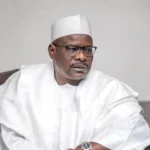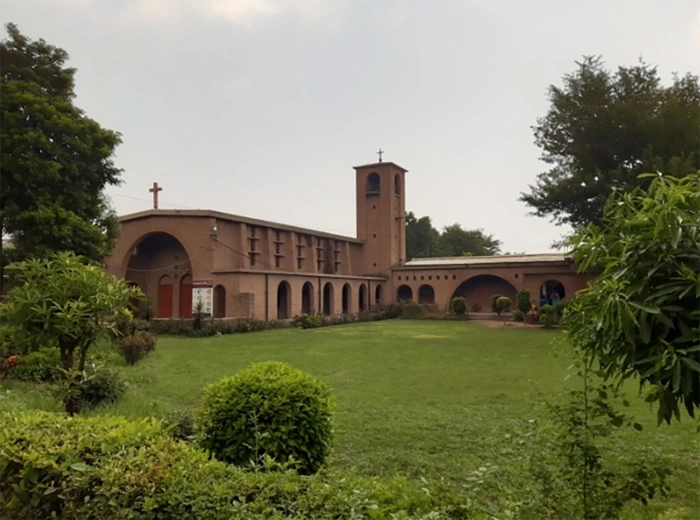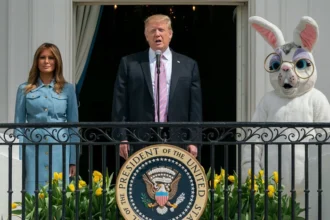The Gujranwala Theological Seminary (GTS), one of Pakistan’s oldest and most respected institutions for theological education, is facing a leadership upheaval following serious allegations of financial corruption and significant irregularities in a major building project. The chair of its Board of Directors, Reverend Majid Abel, has been removed from his position due to these allegations, which include illegal activities that have threatened the integrity of the institution’s operations. The GTS, which has been the cornerstone of Evangelical and Reformed theological training in Pakistan, now finds itself embroiled in a scandal that could jeopardize its future.
Founded in 1877 by United Presbyterian missionaries, GTS has long been a pillar in the training of pastors for the Presbyterian Church of Pakistan (PCP), the United Church of Pakistan, the Associate Reformed Presbyterian Church, and other Protestant denominations. Over the years, the seminary has graduated thousands of pastors who have gone on to serve churches across Pakistan and beyond. However, recent developments, including the removal of Reverend Abel from his position, have cast a shadow over its long-standing legacy.
The crisis began to unfold when a review of a new academic building project funded by donations from the U.S. and other sources revealed troubling financial practices. The investigation, conducted by independent auditors from Tariq Haneef & Co Chartered Accountants, uncovered numerous issues surrounding the project’s execution. The findings pointed to a lack of formal approval for the project, unauthorized fund transfers, and questionable business dealings. Notably, the project was reportedly undertaken by Reverend Abel without the board’s written consent, violating the seminary’s governance processes.
The auditors reported that no formal budget or implementation plan was created for the project. Furthermore, donations intended for the seminary were allegedly deposited into unauthorized accounts, including the chairman’s personal accounts. This raised concerns about potential financial mismanagement and a lack of transparency in the donation process. In a shocking revelation, the auditors discovered that contractors involved in the building project were the chairman’s own brothers, whose companies were allegedly awarded the contracts without a competitive bidding process. This apparent conflict of interest further undermined the integrity of the project.
Additionally, the review found substantial discrepancies in the payment process for contractors. Payments totaling millions of Pakistani Rupees were made to these companies without proper documentation, such as invoices, suggesting the possibility of fraudulent transactions. The report also flagged the use of two receipt books to record donations—one officially issued by GTS, and another allegedly printed by Reverend Abel himself. These irregularities have raised serious questions about the seminary’s financial accountability.
One of the most alarming findings was the discovery of a series of large loans made by Reverend Abel to the seminary from his personal bank account. Between July 2022 and March 2024, he loaned the seminary a total of 16.2 million Pakistani Rupees ($58,000) for administrative expenses and building construction. While the seminary repaid a portion of these loans, the lack of documentation and the fact that some of the repayments had no clear record raised concerns about potential double claims for the same funds.
In light of these findings, the GTS Board convened an emergency meeting on January 2, which led to Reverend Abel’s immediate removal from his position. The board also elected new office-bearers, including Reverend Emric Joseph as chairman. However, Reverend Abel has contested his removal, calling the meeting “illegal” and insisting that only the board’s chairman had the authority to convene such meetings. He further claimed that the board’s decisions were not legitimate since they had not followed proper procedural protocols.
Abel’s tenure as chairman had already been marked by tension with the seminary’s principal, Reverend Nosheen Khan, who had raised concerns about his management style and alleged corruption. Khan had reportedly complained to board members and donors about the chairman’s handling of the building project and his micromanagement of the seminary’s affairs. Tensions reached a boiling point in 2023 when Reverend Abel attempted to take unilateral control of the seminary’s leadership by suspending Khan’s administrative powers, a move that was not authorized by the board.
In the aftermath of the controversy, Khan has maintained that her actions were in the best interests of the seminary and that she had no knowledge of the unauthorized fundraising and construction activities. She has also pointed to a lack of transparency and documentation regarding the funds raised for the project, which had been managed almost exclusively by Abel and a small group of individuals.
While the situation at GTS remains tense, some observers within the institution believe that the leadership crisis could provide an opportunity for reform. Long-standing issues at the seminary, including allegations of nepotism, financial mismanagement, and political infighting, have undermined its credibility and mission. Church leaders, including senior bishops, have called for structural reforms and greater transparency in both the financial and administrative operations of the seminary.
Bishop Samuel Robert Azariah, a former moderator of the Church of Pakistan, has stated that the institution has long struggled with division and distrust, which has compromised its ability to fulfill its mission. He emphasized the need for a new leadership model that prioritizes financial accountability, transparency, and a return to the seminary’s original focus on discipleship. “GTS must return to its original vision of producing faithful disciples of Christ, not church politicians,” he stressed.
As GTS grapples with these internal challenges, the future of the institution hangs in the balance. The board’s efforts to address these issues will be crucial in determining whether the seminary can overcome its current crisis and continue to serve as a beacon of theological education in Pakistan and beyond.

















